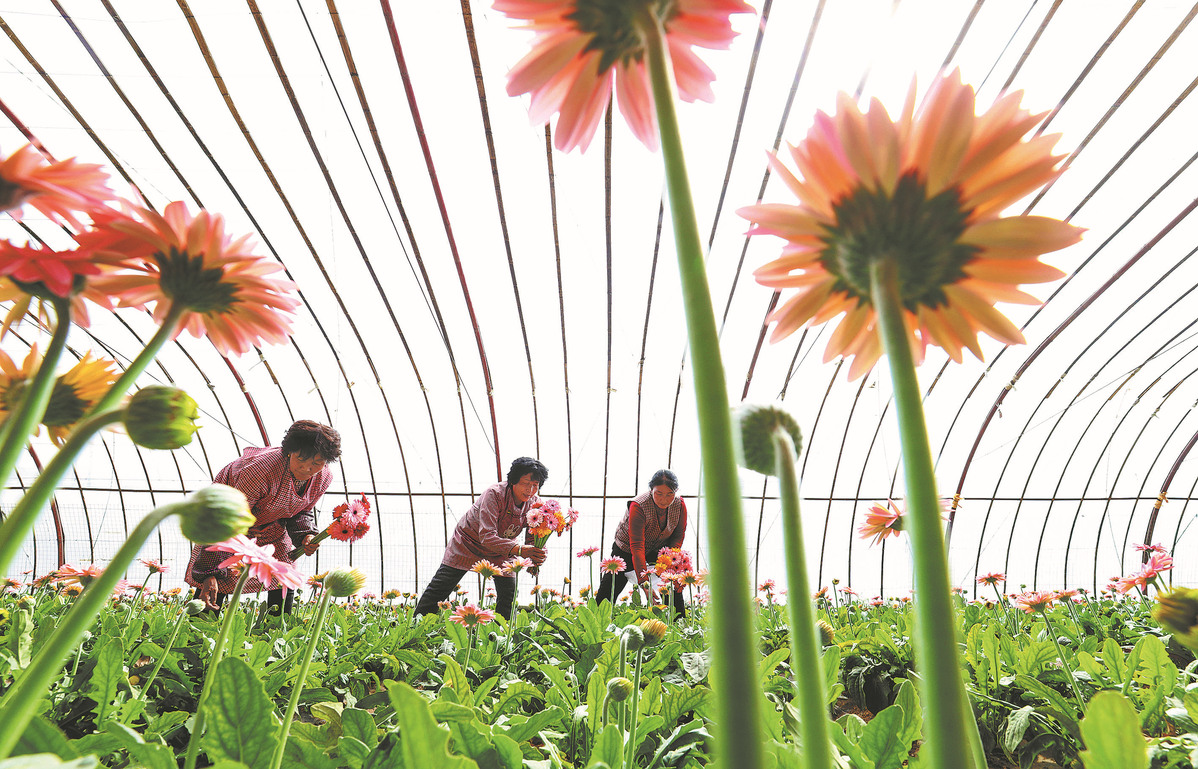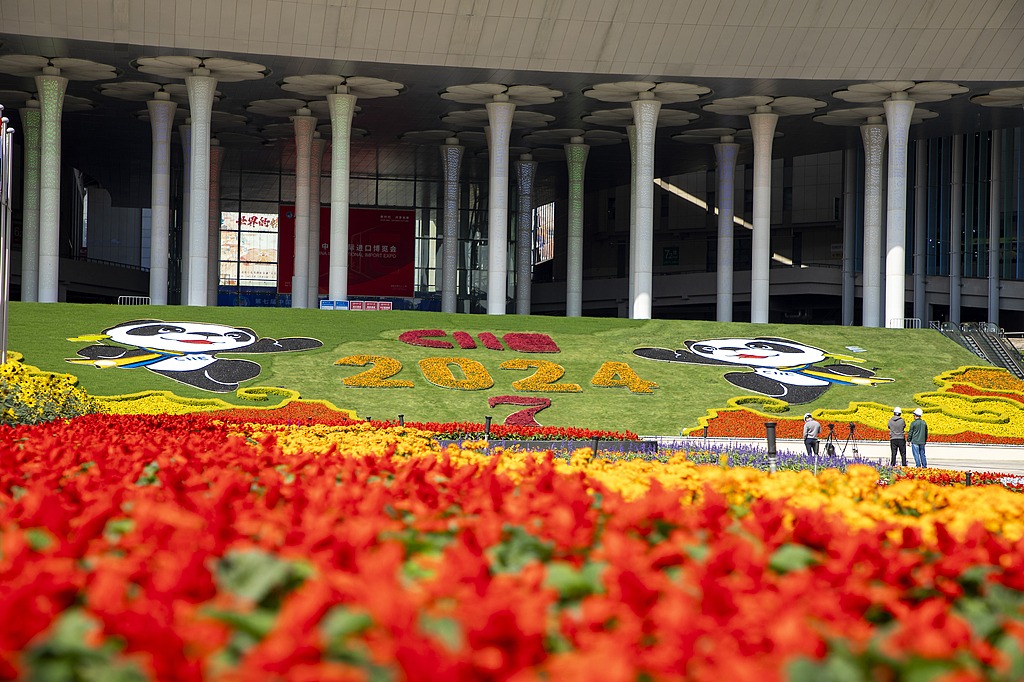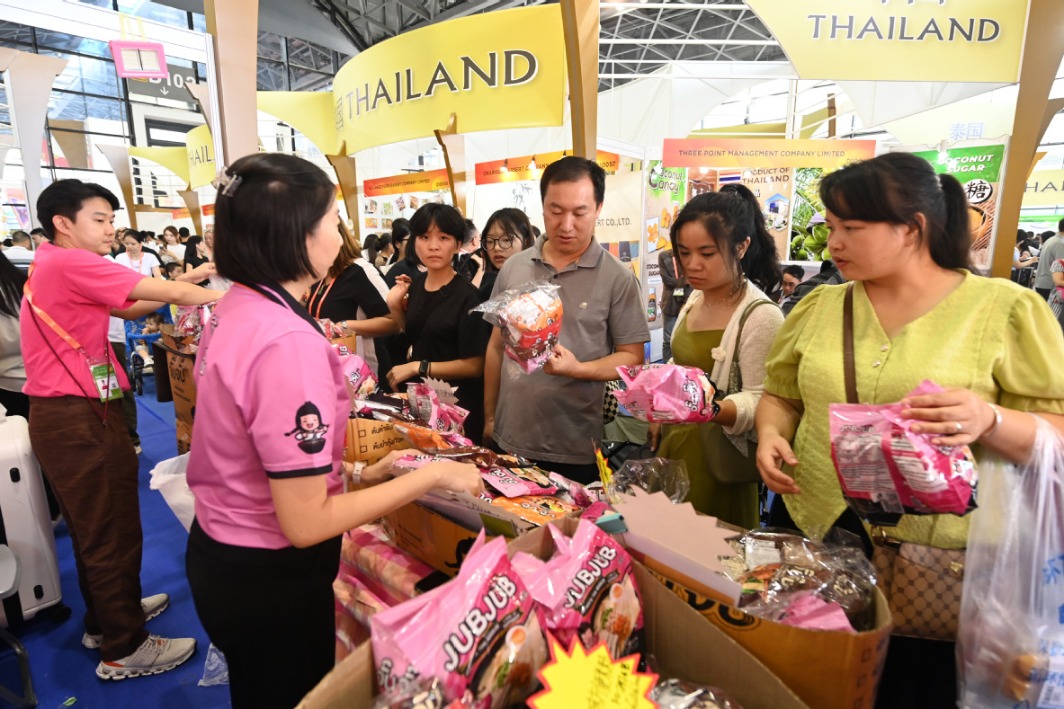Green thumb culture seen blooming again
Potted houseplants, flowers turning more Chinese homes into veritable gardens as households yearn for aesthetic spaces


Chinese consumers have been increasingly buying flowers and plants to buoy emotions and beautify living spaces as they pursue more diversified and niche varieties, fueling rosy business growth for retailers.
So far this year, more than 100 million people have purchased flowers, plants and related gardening goods on Alibaba's e-commerce platform Taobao, with nearly 60 percent of such customers being female.
The number of buyers has climbed for three straight years, according to a joint report by the School of Agricultural Economics and Rural Development at Renmin University of China, Taobao and Tmall Group.
The traditional notion that flower and plant fans are mainly those with plenty of free time has changed in recent years. Busy urban consumers have found enhanced spiritual sustenance in tending to flowers and houseplants in their leisure time, the report said.
China stands as the largest producer of flowers globally, and an important trader and consumer of the popular commodities. The country has more than 5,000 large-scale flower enterprises, and some 5.3 million people are involved in the sector, according to the China Flower Association.
Shi Xin, a 34-year-old owner of online store Plant X, which mainly sells tropical plants, saw sales revenue at his store hit nearly 20 million yuan ($2.77 million) last year, driven by increasing demand for beautiful tropical plants by those wishing for a more exotic decor in their homes and workplaces.
Chinese plants such as blue jacaranda and Acorus calamus, which are suitable for home embellishment with their distinct appearances, have seen sales surge online lately. Tropical plants such as green velvet alocasia and turtle-backed bamboo have increasingly become a part of the lifestyle of urban residents, the report found.
Shi said he mainly purchases seeds from different regions and nurtures the plants at a greenhouse in Conghua, Guangdong province. Guangdong stands at the largest production base of small potted plants nationwide.
He launched an online store on Taobao in 2019 and quickly began hosting livestreaming sessions. Livestreaming has significantly helped boost sales, as a large number of consumers enjoyed watching livestreaming sessions during the COVID-19 pandemic and interacting with anchors to gain more knowledge about domestic horticulture.
"Cultivating tropical plants is like buying pop toys for many young consumers, and they highly recognize the value of such plants. Sharing photos of plants with others is also a way of social networking. The repurchase rate of our plants is about 55 percent," Shi said.
"We are bullish on the growth potential of tropical plants in China. Some experienced green thumbs even buy 100 or more potted plants each year, with many gifting their purchases. In addition, many people are still unfamiliar with the hobby, so it is believed there will be more sales growth opportunities," Shi added.
Buying flowers and plants online has become a growing hobby for an increasing number of Chinese consumers, and e-commerce business has significantly contributed to the growth of the flower economy in China.
A majority of flower and plant buyers online are people aged between 30 and 49. Among the total, over 40 million are high-income individuals, providing opportunities for the flower and horticulture industries to develop toward higher quality and more premium products, the report said.
In particular, consumers from Shanghai, Beijing and Guangzhou, Guangdong province, are most enthusiastic about purchasing flowers. Over 120,000 pots of flowers are delivered from all over the country to the homes of flower enthusiasts in Shanghai every day, the report said.
Shi has been constantly innovating and hybridizing varieties after purchasing the seeds, and he develops hundreds and thousands of different varieties annually. As long as a couple of varieties become bestsellers online, it contributes to booming sales growth, he said.
For high-end tropical plants, each pot can carry price tags above 1,000 yuan. For mid-end varieties, prices usually range from 300 to 500 yuan per pot. Eyeing the growing demand, Shi plans to hire more employees at his company and introduce more varieties this year.
Despite mainly targeting domestic consumers, he also exported some 100,000 pots of tropical plants to Southeast Asia last year.
In 2019, before the onset of the COVID-19 pandemic, sales of flowers reached 255.3 billion yuan in China, a record high. Sales declined due to the pandemic, but gradually picked up later and reached 225.5 billion yuan in 2022, up 4.36 percent year-on-year. The export value of flowers was $863 million in 2022, growing 25.55 percent on a yearly basis, data from the flower association showed.




































